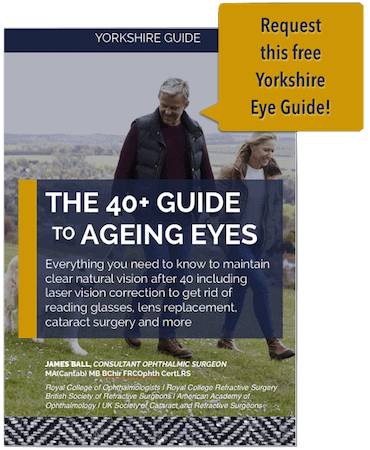
What causes keratoconus?
As with many conditions, it’s a combination of genetic factors and environmental factors that cause keratoconus. We know that there are some families where keratoconus is quite common, and I have quite a few families in Yorkshire where I look after siblings and cousins. These people have been kind enough to provide us with little blood samples and the team that has been studying the genetics of these families, and we’ve identified several genes that are involved in increasing the risk of developing keratoconus.
It isn’t a simple cause and effect like some genetic disorders. We know that there are some genes that predispose people to develop keratoconus but perhaps bizarrely it seems the environmental factors can trigger it and the primary factor appears to be eye rubbing, which whenever I talk about it to patients it sounds a bit silly to me. But there’s a clear, consistent pattern and it’s reported in a lot of papers and the common factors appear to be severe allergies, eczema, very bad hay fever, and conditions which cause young people to rub their eyes vigorously.
Interestingly, in some patients with learning difficulties, such as patients with Down Syndrome, for example, we often find that they like the visual stimulation. They’re called phosphenes, and I don’t know if you ever tried just rubbing your eye like that and you’ll see a dark shape appear. Some children get to like the appearance of the phosphenes and will rub their eyes as a result. We have patients with allergies and sometimes with learning difficulties, both of who like rubbing their eyes. That seems to be the final common path that can trigger abnormal behaviour in the cornea.
The cornea or the window to the front of the eye starts to become a little bit thinner and weaker, and that change can in some patients accelerate away. The first thing we do when we meet a patient with a diagnosis of keratoconus for the first time is to talk to them about not rubbing their eyes. Now, it’s all very well nagging people and saying well “don’t rub your eyes”, but a key part of that is to make sure that any allergy, hay fever or eczema they may have is being well managed. I think if I had terribly itchy eyes, it wouldn’t matter if I’ve been told if I really want to rub them. But if we can really get on them for rubbing their eyes and it does appear that if we can achieve that then we reduce the chances of those eyes that are progressing to advance keratoconus.
REQUEST A CALL BACK



